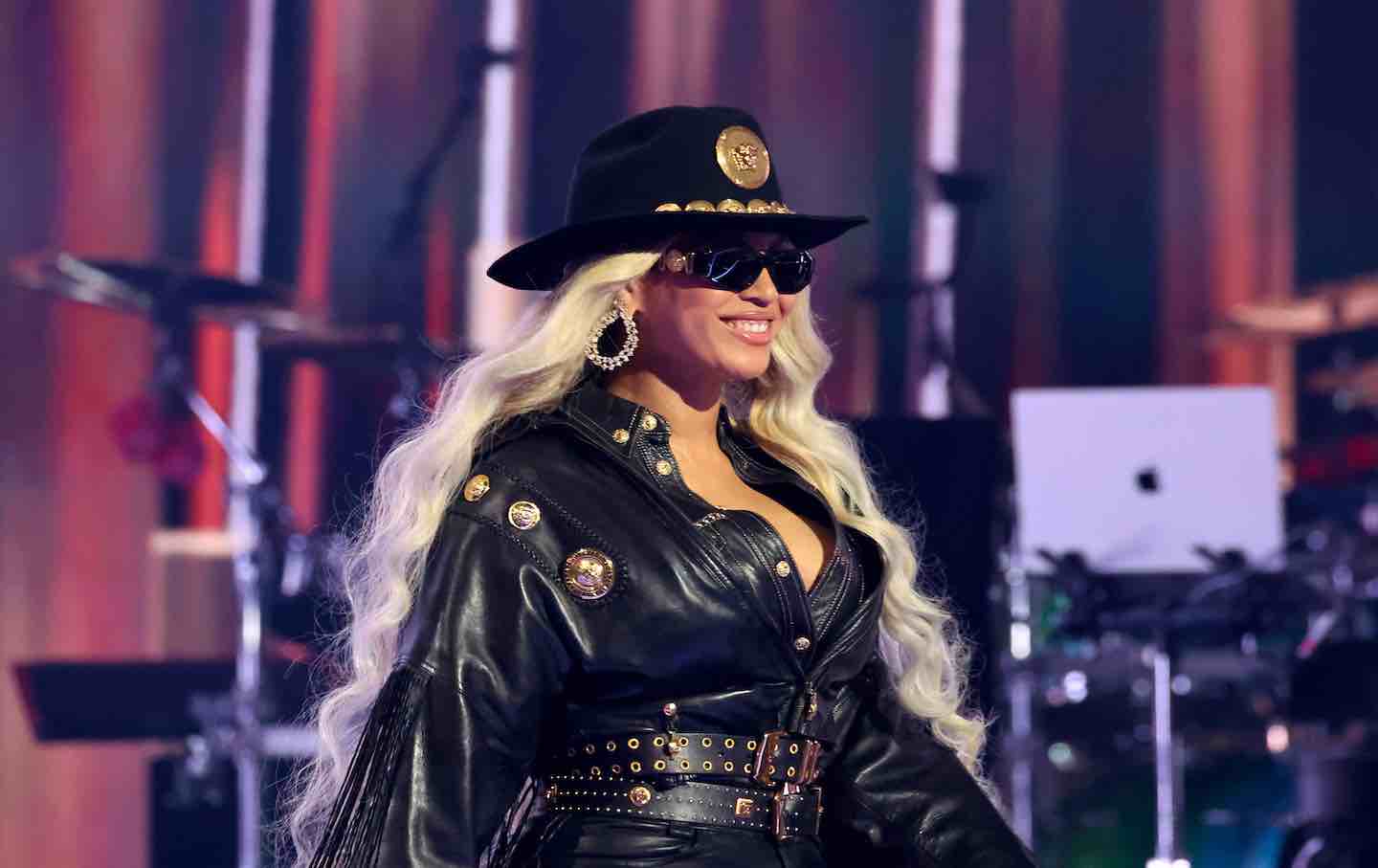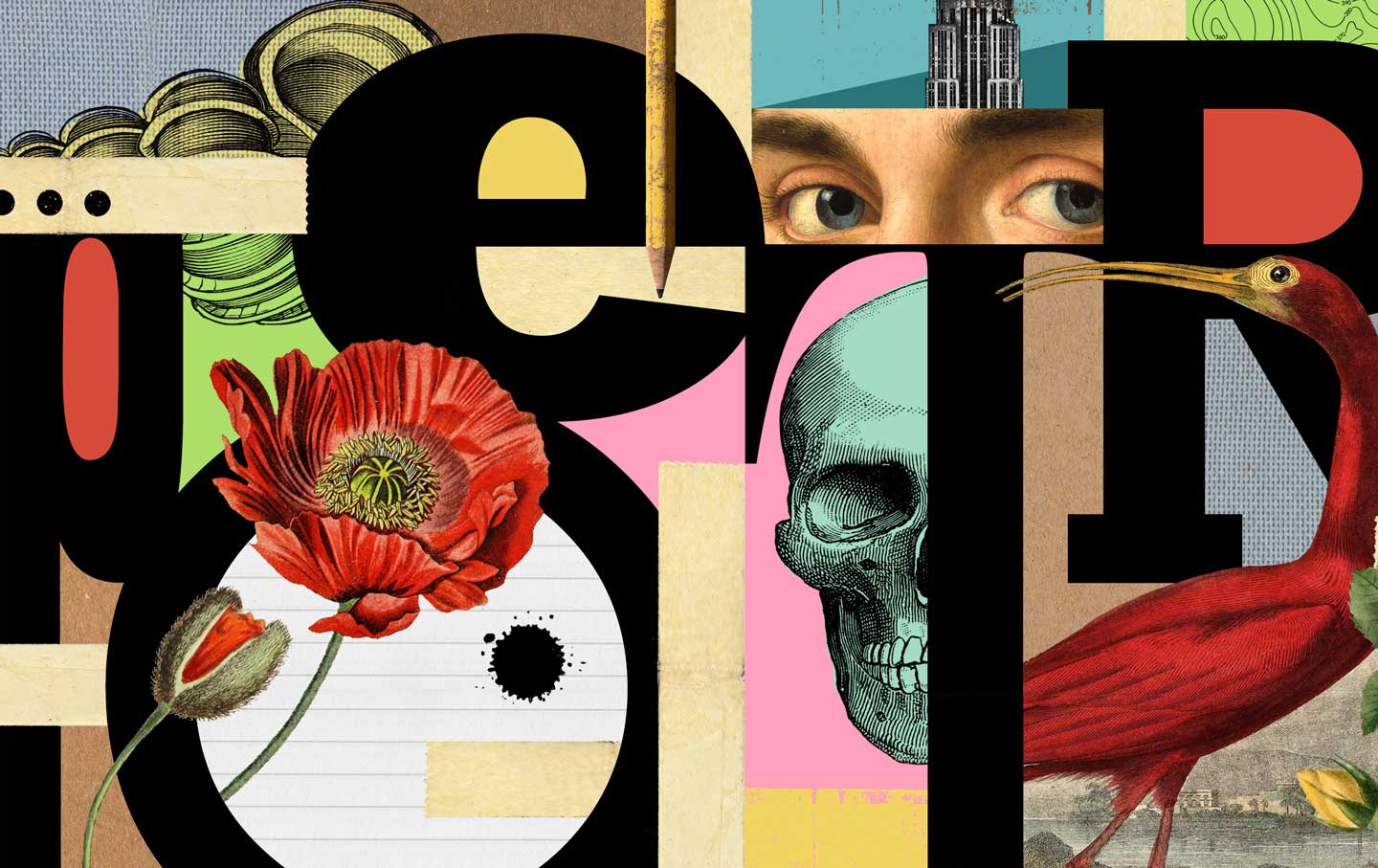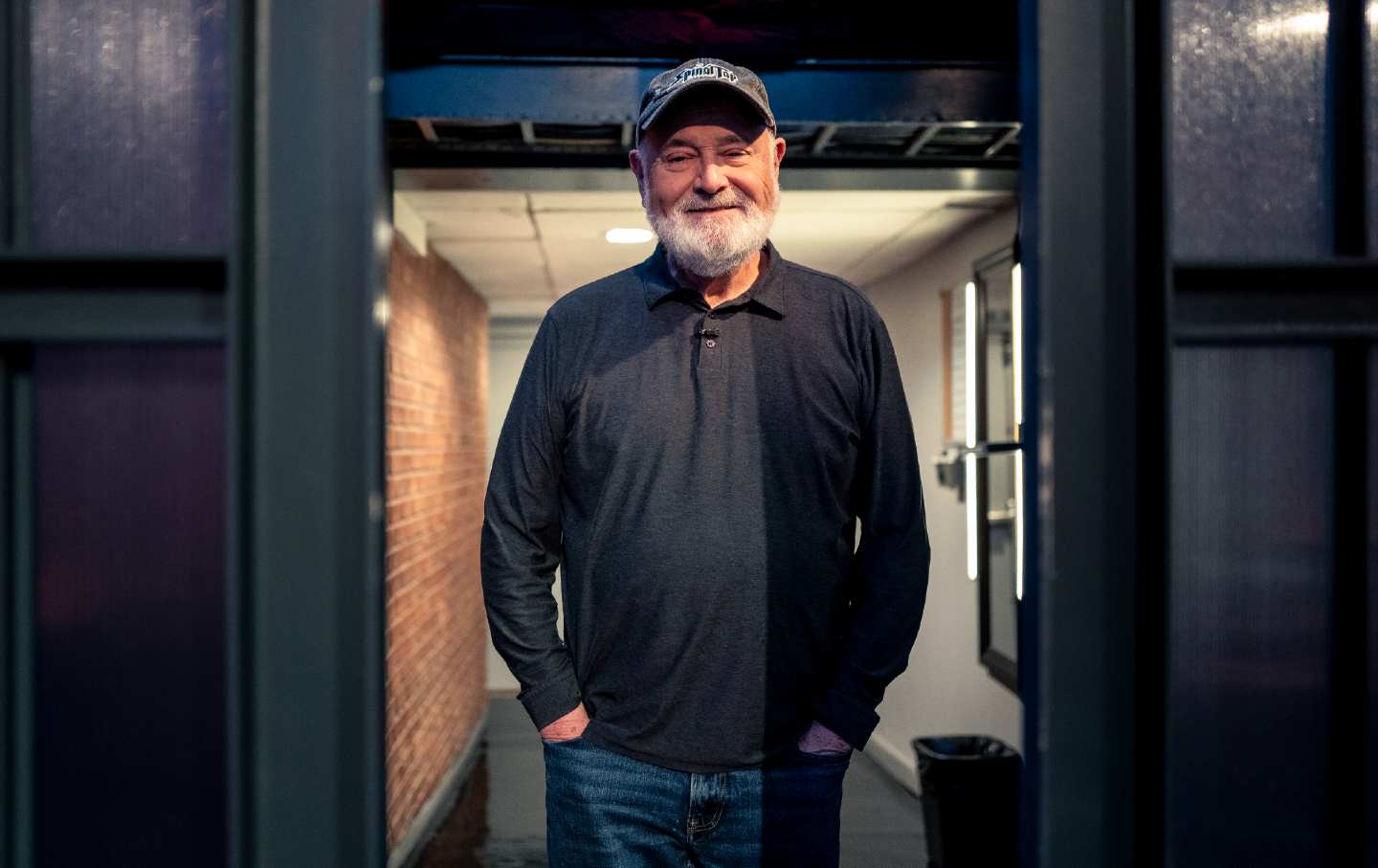Did Beyoncé Conquer Country Music?
On Cowboy Carter, the pop superstar’s bid to radicalize a parochial genre falls short.

Beyoncé at the 2024 iHeartRadio Music Awards at Dolby Theatre in Hollywood, California.
(Photo by Amy Sussman / Getty Images)An outlaw rides into Music City on a white steed, sitting sidesaddle and waving Old Glory. A mean posse of songwriters, producers, instrumentalists, and singers accompanies her as she promenades down Broadway. Some of the crew are grizzled country-music vets; others, namely the likes of Pharrell and Swizz Beatz, are emphatically outsiders. The intent of the procession is unclear, but knowledgeable observers quiver with fear.
In 2016, the last time the outlaw, Beyoncé, visited Nashville, to perform at the rhinestone-encrusted Country Music Awards, her audience—a gathering of the city’s music elite—scorned her. Though she honored their traditions, singing a song that praised her father and paid tribute to the Second Amendment over twangy guitar and swinging harmonica, the Music Row aristocracy did not welcome her. She is Black, and a global pop star to boot. In protest, audience members left the theater, scowled, and heckled. “Get that Black bitch off the stage,” one of them reportedly said. Has she returned to take that stage back? Or, more audaciously, burn it down? She was not the first Black person they drove out of town, after all…
Not at all. The massive American flag on the cover of Cowboy Carter is disappointingly sincere. Though Beyoncé presents her eighth album as an act of personal and musical retribution, she spends more of its 78 minutes submitting to country standards than reclaiming or deconstructing them. The record is epic in scope, and filigreed with detail, but its thesis is humdrum. Beyoncé responds to the entrenched racism of the country-music industry, and its historical erasure and sidelining of Black artists, by saluting the repertoire and offering her own spin. On the cinematic, Ennio Morricone–inspired opener, “American Requiem,” Beyoncé lays out her credentials like a candidate for public office: “The grandbaby of a moonshine man / Gadsden, Alabama / Got folk down in Galveston, rooted in Louisiana.”
This appeal to down-home authenticity is understandable as a point of personal pride, but it proves self-defeating. Couching her claim to a new genre this way legitimizes the notion that only certain people should participate in it, which is an especially strange argument given what Beyoncé has already accomplished: Her discography spans Motown soul, Houston slab, electrofunk, dancehall, stadium pop, and even country. In bowing to legitimacy, Beyoncé ends up sacrificing the imagination and provocation that power her best music. The result is a mix of pretty but empty tunes that offer grandeur without vision.
Cowboy Carter follows Renaissance, the stunning 2022 album that presented Beyoncé as the reigning queen of all dance floors. A disco ball jerry-rigged into a time machine, that record condensed decades of disparate scenes and sounds into a polyvalent ode to the Black and queer pioneers of dance music. It was a Beyoncé album and a historical celebration, centering both its star and the vast constellation of creators of which she is a part. True to the title, Beyoncé sounded reborn in those lush songs, delivering some of the most energized and sinuous performances of her two-plus decades in music.
The sequel, the second entry in a planned trilogy, isn’t as commanding or transformative. The album is structured as a pirate broadcast from a radio station run by country stalwart Willie Nelson, but it rarely feels as subversive as that conceit would suggest. The songs cruise through the genre’s present and past without developing an overarching perspective on the music. To the extent that there is one, it’s “I did my homework.”
It’s true—there are samples, references, and features galore. The elegant “Blackbiird” recruits rising Black country singers Reyna Roberts, Tanner Adell, Tiera Kennedy, and Britney Spencer to cover (and of course countrify) the Beatles—an odd use of all that insurgent and relatively unknown talent. “Jolene” reworks the wounded and pleading Dolly Parton classic into a perplexing warning. “I know my man’s gon’ stand by me,” Beyoncé croons with conviction, recasting Jolene, a seductress who can have anyone she wants, as an annoyance to her relationship rather than a threat to it. But if that’s the case, why is the narrator even addressing her? The original is powerful because the narrator fears Jolene’s sexuality and turns to her not in rage but in desperation.
These curious choices mount as the album goes on. Skits suggest that Beyoncé and other Black country artists are imprisoned by genre and racist expectations, but the songs do not play with these tensions in noteworthy ways. Two interludes, “Oh Louisiana” and “Smoke Hour ★ Willie Nelson,” feature samples of Chuck Berry, Sister Rosetta Tharpe, and Roy Hamilton purely as clips. There are no sentiments or ideas undergirding these references to Black country other than “I’m not the first”—a far cry from the pride and indignant crate-digging and interpolations of Beyoncé’s past albums. The thundering and introspective single “16 Carriages” offers something of a mission statement with the line “We got something to prove.” But Cowboy Carter never establishes what that something is, or why that desire justifies an album that doesn’t have a single song as catchy as “Daddy Lessons,” the swaggering ballad that got booed at the 2016 CMA Awards.
If the goal is to show that the resources of the Beyoncé machine can create and blend any style of music, mission accomplished. At the level of arrangement, every track is robust, layered with banjos, steel-pedal guitar, handclaps, and boot-stomp percussion that often weave into beefy drums and gorgeous R&B melodies. “Riiverdance,” a highlight, could soundtrack a square dance or a vogue competition. “Bounce on that shit, dance,” Beyoncé commands, sounding like a rodeo announcer and a house deejay. “Bodyguard” melds a funky bass line, rhythmic acoustic guitar licks, and airy woos into a groovy love song. Fusing country and trap, “Tyrant” yokes hi-hats, string loops, and 808 kicks into a bouncy hoedown. Beyoncé and her collaborators certainly cannot be accused of cosplay.
But if they were, so what? Any Shania Twain, Dolly Parton, Keith Urban, or Lil Nas X fan knows country thrives on pageantry and audacity as much as authenticity and pedigree. When Beyonce lets her hair down and just grooves, the record shines. “Sweet ★ Honey ★ Buckiin,” a suite of smooth harmonies and pounding bass, is delightfully unbothered, shuffling through its sounds like a possessed jukebox. Cowboy Carter as a whole could have been such a romp, but Beyoncé is so hell-bent on proving she belongs, and showing that it’s her right as a native Texan to make country music—while also declaring that, actually, she can make any kind of music she pleases—that she ends up with a hill of beans.
“Amen,” the gospel-tinged album closer, features a disorientingly bloodless vision of liberation: “This house was built with blood and bone / And it crumbled, yes, it crumbled / The statues they made were beautiful / But they were lies of stone.” The house could be a plantation, Music Row, or America; the statues could be Grammys or Confederate monuments. In either scenario: Who exactly has done this liberation, and why did they do it? What have they gained and lost? Cowboy Carter does not offer any answers, but it’s got footnotes by the horseload.
Disobey authoritarians, support The Nation
Over the past year you’ve read Nation writers like Elie Mystal, Kaveh Akbar, John Nichols, Joan Walsh, Bryce Covert, Dave Zirin, Jeet Heer, Michael T. Klare, Katha Pollitt, Amy Littlefield, Gregg Gonsalves, and Sasha Abramsky take on the Trump family’s corruption, set the record straight about Robert F. Kennedy Jr.’s catastrophic Make America Healthy Again movement, survey the fallout and human cost of the DOGE wrecking ball, anticipate the Supreme Court’s dangerous antidemocratic rulings, and amplify successful tactics of resistance on the streets and in Congress.
We publish these stories because when members of our communities are being abducted, household debt is climbing, and AI data centers are causing water and electricity shortages, we have a duty as journalists to do all we can to inform the public.
In 2026, our aim is to do more than ever before—but we need your support to make that happen.
Through December 31, a generous donor will match all donations up to $75,000. That means that your contribution will be doubled, dollar for dollar. If we hit the full match, we’ll be starting 2026 with $150,000 to invest in the stories that impact real people’s lives—the kinds of stories that billionaire-owned, corporate-backed outlets aren’t covering.
With your support, our team will publish major stories that the president and his allies won’t want you to read. We’ll cover the emerging military-tech industrial complex and matters of war, peace, and surveillance, as well as the affordability crisis, hunger, housing, healthcare, the environment, attacks on reproductive rights, and much more. At the same time, we’ll imagine alternatives to Trumpian rule and uplift efforts to create a better world, here and now.
While your gift has twice the impact, I’m asking you to support The Nation with a donation today. You’ll empower the journalists, editors, and fact-checkers best equipped to hold this authoritarian administration to account.
I hope you won’t miss this moment—donate to The Nation today.
Onward,
Katrina vanden Heuvel
Editor and publisher, The Nation







